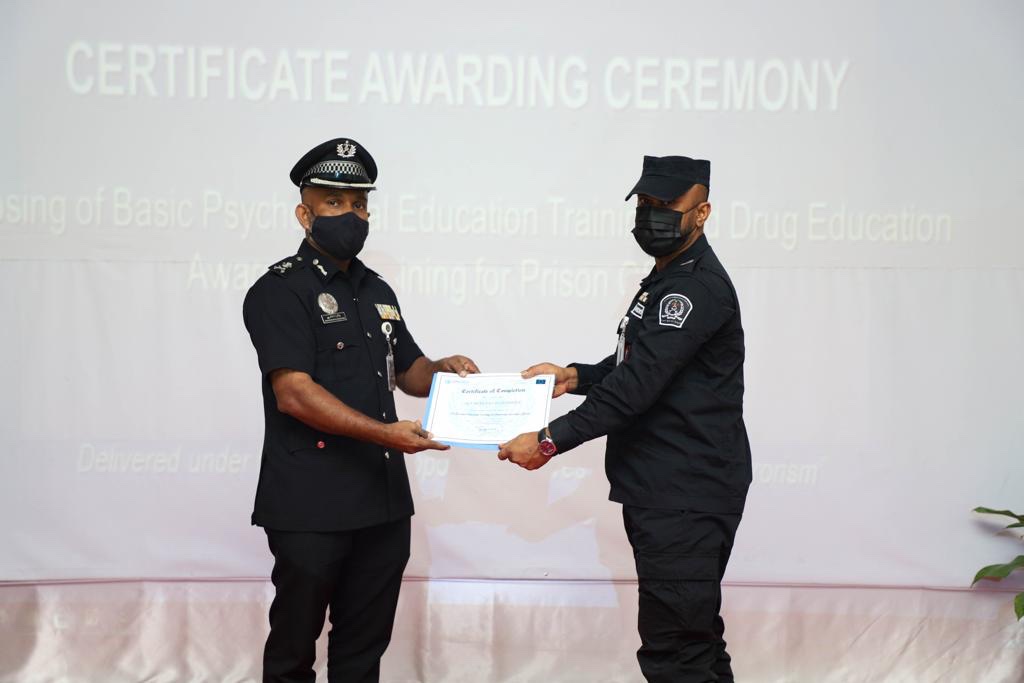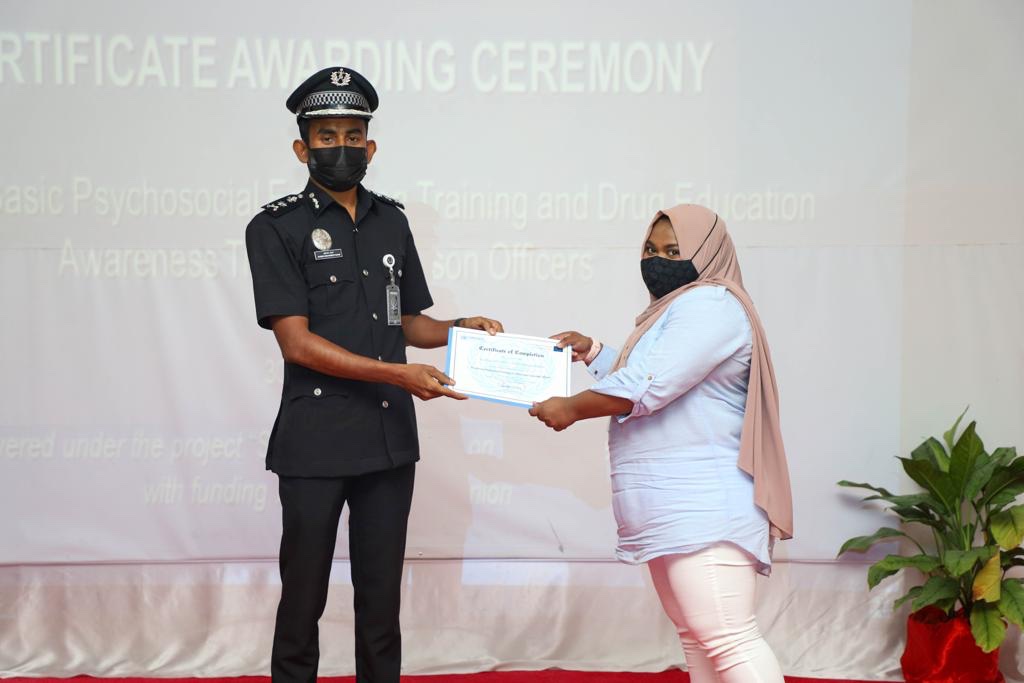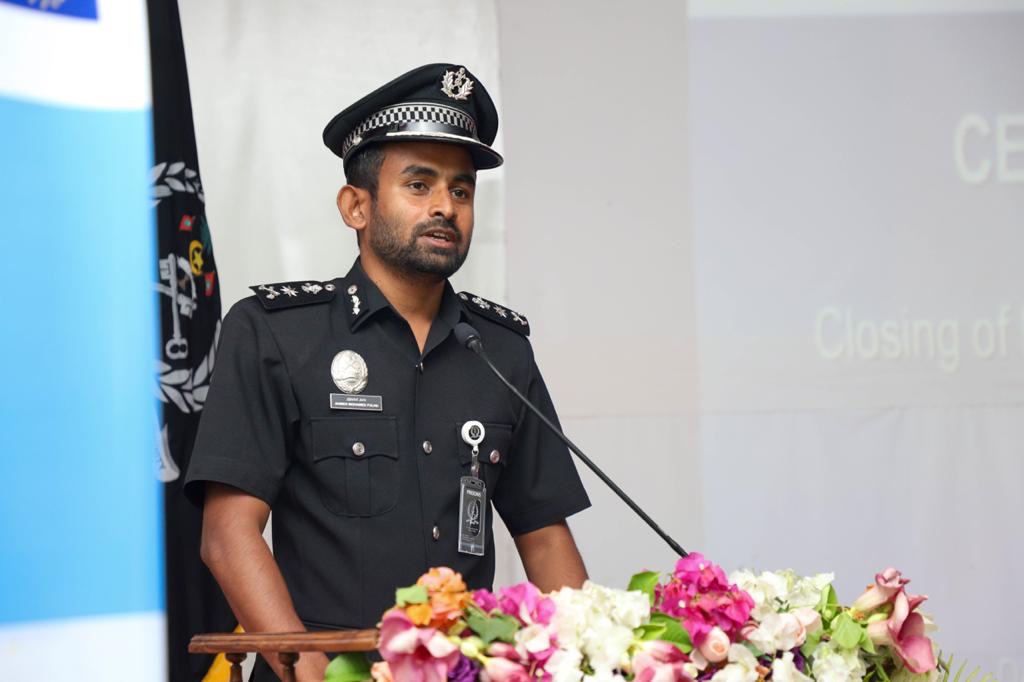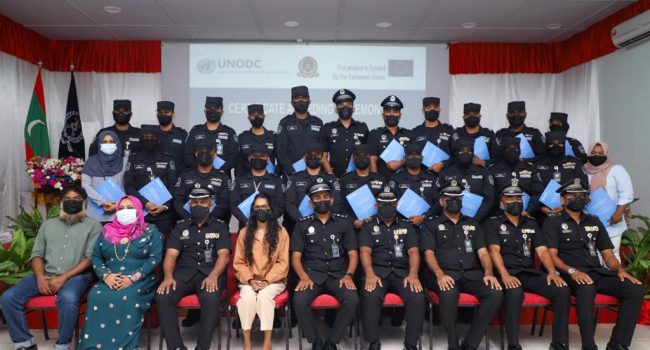Maldives Correctional Service (MCS) has held the closing ceremony to conclude two training programmes conducted to develop prison officers in collaboration with United Nations Office for Drugs and Crime (UNODC) last night.
The ceremony, held at Maafushi Prison; was honoured by Commissioner of Prisons Ahmed Mohamed Fulhu and attended by Deputy Commissioner of Prisons Uz. Ibrahim Mohamed Didi, Commissioned Officers, UNODC’s National Programme Coordinator Ms Thoiba Saeed and facilitators of the two programmes.

Certificates were awarded at the ceremony to those who completed the programmes. 24 officers completed the “Training on Basic Psychosocial Education” held from 17th July to 24th July 2021; while 23 officers completed the “Drug Education Awareness Programme for Prison Officers” held from 25th July to 29th July 2021. The participants of both trainings were of the same batch.
In addition, Ms Thoiba Saeed from UNODC presented the Nelson Mandela Rules Toolkit to Commissioner of Prisons Ahmed Mohamed Fulhu.

Commissioner congratulated and thanked participants of the two programmes, while also thanking UNODC for the close relationship maintained with MCS and the professional and other assistance provided to develop prison officers into capable professionals. He also thanked MIPSTER and Journey for their contribution towards the programmes.

During his speech, the Commissioner noted that despite national-level discussions and efforts to tackle the issue of narcotic drugs, satisfactory solutions have not been found because it is widely spread in the community and even prisons, with dire consequences. And in the four prisons operated by MCS, 70% of the inmates connected to narcotic drugs in some way, so in addition of conducting rehabilitation programmes, MCS has to stop the supply of drugs too, Said the Commissioner. CP said that the statistics published by MCS show that during the first six months of this year, about half a kilo of narcotic drugs were confiscated during various operations. While more research is being conducted on how drugs are entering the prisons, the Maldivian prisons are built lacking certain basic features which greatly hinder the security and safety measures, such as the lack of a boundary wall and modern equipment, noted CP. He stated that even though the movement of inmates has been reduced to one percent due to Covid-19 but we still note that contrabands and narcotics are being smuggled in, for example during the first six months of this year, 178 mobile phones were confiscated during various operations. He said that there are some challenges to managing this issue and it is saddening to note that some officers are involved in this. To put a stop to it, the Commissioner stated that steps such as revising the organisational structure of MCS and setting up Professional Standards has been taken. He also noted that the number of rehabilitation programmes being conducted at prisons are considerably less due to lack of resources and adequate staff.
In addition, the Commissioner said that discussions are ongoing with state-owned enterprises to offer apprenticeship opportunities for parolees.
He further added that discussions are ongoing with relevant government institutions to discover ways of ruling out punishments other than prison sentences.
















